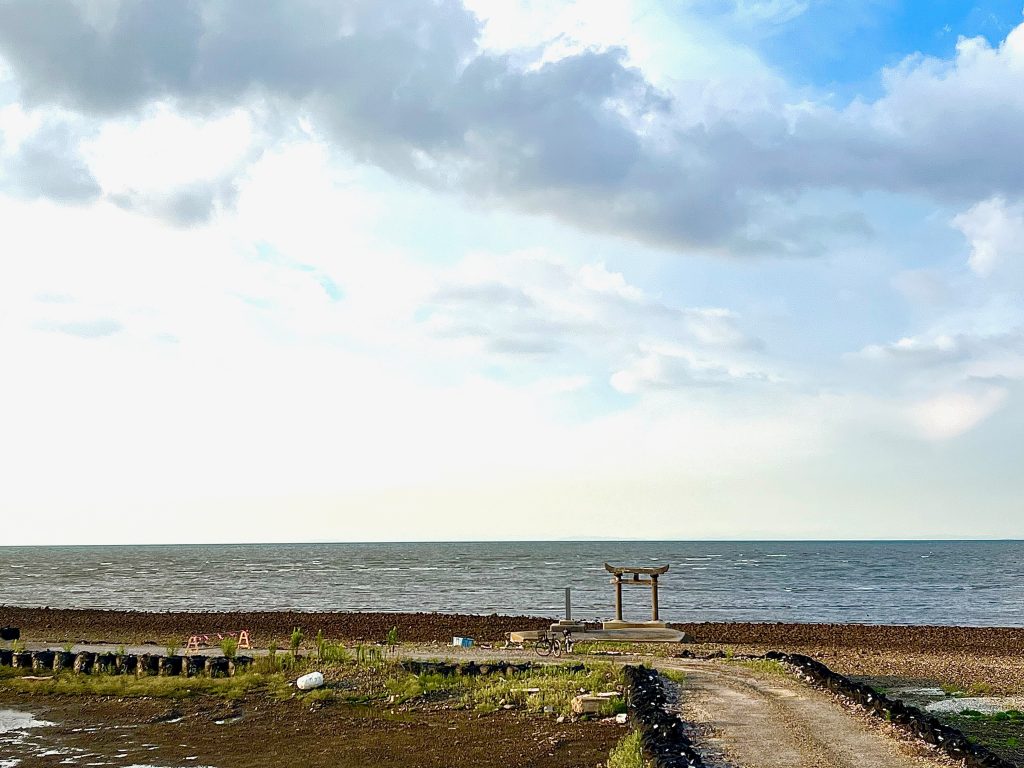by Ngo Tu Thanh (Frank Tu)
Political scientists have discussed the role of ideas in policy decisions and policy implementation [1]. In my previous blog post, I talked about the numerous revitalization activities implemented by the coastal city of Buzen, Fukuoka Prefecture. Buzen has been striving to promote international cooperation and multiculturalism, which can in turn contribute to the city’s revitalization. My interviews with five policy actors from Buzen provide insights into some of their ideas for the city’s future development. I talked to two local government officials, two local politicians and one policy advisor.

The City Hall of Buzen where local policies are made
Copyright © Ngo Tu Thanh 2022
When asked about possible ways to develop Buzen, all respondents mentioned strategies that take advantage of globalization. During our first online interview in September 2021, one local government official explicitly mentioned the acceptance of more international migrants as one of Buzen’s four key strategies for revitalization. Against the backdrop of population decline, he believes that Buzen’s demographic problems will not change unless the foreign population expands. My other respondents shared this view and consider international migrants as “a powerful asset needed to move our economy forward, in this sense, it is better to accept [migrants]” (interview with Buzen’s policy advisor, October 2022). Currently, there are 344 foreign residents living in Buzen, accounting for 1.4% of the city’s total population [2]. The majority of Buzen’s foreign population is Vietnamese, followed by Burmese and Chinese. Most of Buzen’s foreign residents are technical interns (ginō jisshūsei) [3]. The number of ginō jisshūsei in Buzen is expected to rise in the upcoming years.

A discussion between Vietnamese technical interns, local residents, and local officials
Copyright © Ngo Tu Thanh 2022
My respondents mentioned several challenges for international migrants that need more attention, such as cultural and language barriers. They believe it important to foster mutual understanding between foreign and local residents. One local politician stresses the importance of employing a Vietnamese member of chiiki okoshi kyōryokutai (COKT) at Buzen’s City Hall to overcome the language barrier and welcome international migrants. She thinks of international migrants as “individuals” rather than just “workers” and wants to improve their living conditions.
International education and mutual learning between Japan and other countries were also mentioned as potential revitalization strategies connected to globalization. Such ideas include Buzen’s transformation into a “City of Education” (kyōiku no machi) by establishing international university campuses in Buzen for international and local students in cooperation with Taiwan and Vietnam. Another local politician suggests promoting international exchange with other countries to learn “good things” from them and to introduce “good things” from Japan abroad. For example, Japan could learn from Europe’s environmental policies, he said.

Impression from the coast of Buzen
Copyright © Ngo Tu Thanh 2022
However, the majority of my respondents are concerned that local residents might resist accepting more international migrants, but they are determined to internationalize Buzen. They hope that local residents will interact more with international migrants and change their way of thinking, as one local government official said. Ideas and visions are subjective. My interviews reflect what kind of revitalization strategies Buzen’s policy actors consider, but as I pointed out in my previous blog post, it seems as if globalizing Buzen is not merely a lofty idea of policy actors, but rather a vision the city has been taking concrete actions to realize.
References
[1]
Mukand, Sharun, and Dani Rodrik. 2018. “The Political Economy of Ideas: On Ideas versus Interests in Policymaking.” National Bureau of Economic Research. https://www.nber.org/system/files/working_papers/w24467/w24467.pdf.
Rodrik, Dani. 2014. “When Ideas Trump Interests: Preferences, Worldviews, and Policy Innovations.” Journal of Economic Perspectives 28 (1): 189–208.
[2]
———. 2022. “Buzen-shi no tabunka kyōsei e no torikumi.” https://www.city.buzen.lg.jp/sousei/tabunkakyousei.html.
[3]
Buzen City, Japan. 2020. “Buzen-shi: Tabunka kyōsei no suishin ni kakaru shishin.” https://www.city.buzen.lg.jp/sousei/documents/tabunkakyouseishishin.pdf.
